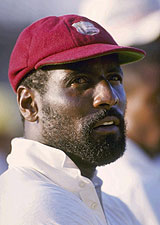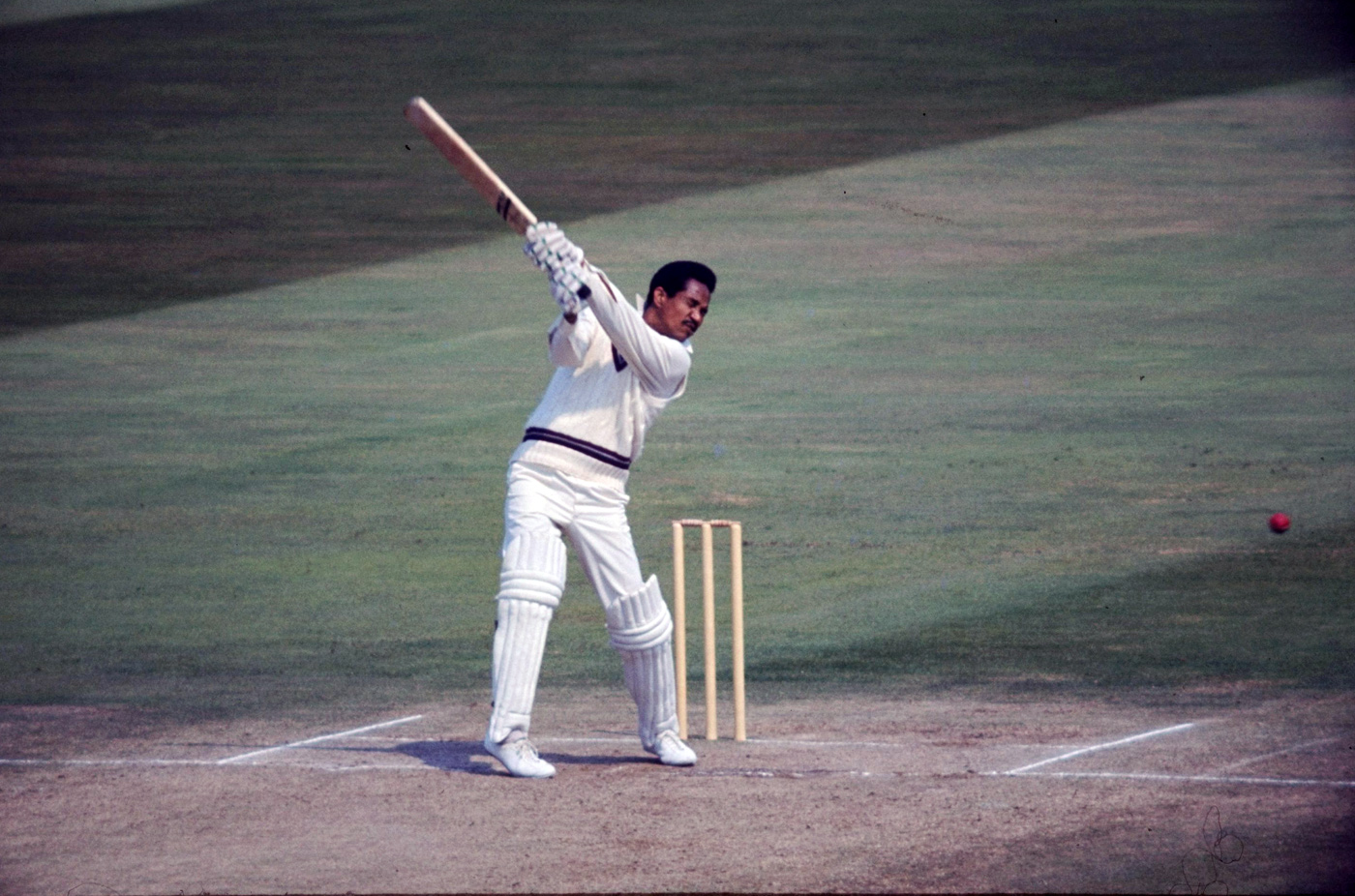Cruel twist of fate
Almost every great hero of West Indies cricket in the modern era has gone down in flames instead of fireworks, writes Fazeer Mohammed
Fazeer Mohammed
23-Apr-2007
|
|

|
This is not a fairytale, it's real life, even if it happens to be the frivolous, sporting variety of it. And when it comes to West Indies cricket, storybook endings-especially involving some of the greatest champions-are few and far between.
For Brian Lara to bow out of the international arena with a whimper instead of a blaze of glory seems to be such a cruel twist of fate, especially in the context of a player whose career has been defined by almost celestial batsmanship and some of the greatest Test innings of all time.
Run out for just 18 (I can only imagine what the Lara faithful are saying about or threatening to do to Marlon Samuels right now), and then being on the losing end in such a thrilling finish was not the script that the vast majority of the thousands at Kensington Oval or the millions following the match all over the world on Saturday would have wanted for their hero.
To have to chase down Stuart Broad's winning hit over cover, knowing that the dream of a winning finale was over, might have seemed like the final indignity, even if the subsequent farewell lap of the ground and the overwhelming, enthusiastic reponse of the adoring fans in the gathering gloom would have been a heartwarming experience.
But, as a keen student of the game that he undoubtedly is, the departing captain and batting star would know only too well that almost every great hero of West Indies cricket in the modern era has gone down in flames instead of fireworks.
From the man he admired most in the early years of his cricketing life, Sir Vivian Richards, to Sir Garfield Sobers, Clive Lloyd and Richie Richardson, all departed the West Indian scene without the grand fanfare that seemed fitting for their status as Caribbean cricketing heroes and globally admired sporting personalities.
Richards' farewell match, the final Test of the 1991 series against England at The Oval in London, also ended in defeat, while the subsequent refusal of the regional selectors to accede to his very public request to be considered for the subsequent 1992 World Cup in Australia and New Zealand generated a degree of acrimony that lingers to this day, especially after he was also unceremoniously replaced as coach in 2000 and then bowed out as chairman of selectors four years later a clearly hurt and disillusioned man.
|
|
For all of the incredible success he enjoyed as West Indies captain (two-time World Cup winner and shaping arguably the most dominant force in the history of the game), Lloyd's last match as a representative of the region also ended in defeat in 1985, when the Caribbean tourists were undone on a turning pitch in Sydney, even though the Test series had already been won handsomely.
Since then, of course, he has also had his ups and downs on the other side of the fence in West Indies cricket, his latest role as team co-ordinator, following two previous stints as manager and one as coach, proving more challenging and mentally draining than surely any of his tasks in nearly 19 years of wearing the burgundy cap on the field.
Sobers' playing career lasted a year longer, from 1954 to 1974, but the greatest all-round cricketer of all time was not immune to what could probably be described as the curse of the legend's farewell.
Replaced as captain by Rohan Kanhai for the 1973 home series against Australia, he then declared himself unavailable as a player on being asked by the West Indies Cricket Board of Control (the "Control" was still in place then) to prove his fitness. Back in the fold for the tour of England a few months later, he hammered a commanding hundred in his final Test at Lord's, but when it came to his actual final Test, there were no such heroics, being bowled by off-spinner Pat Pocock on the last day of the fifth Test at the Queen's Park Oval as England squared the 1974 series 1-1.
Like so many of the former greats, it seemed the administration of the time was not too keen on utilising his experience in any capacity subsequently, and it was only in October of 2004, with the imminent change of team sponsorship from Cable and Wireless to bitter telecommunications rivals Digicel, that Sobers was appointed as an "advisor" to the team. What that role entailed has never really been made clear, and has come to be interpreted more and more as a public relations exercise to deflect criticism from the media and general public over the appointment of Bennett King and the rest of his Australian staff as the technical team of the Caribbean side.
Few departures could have been as painful as Richardson's, however. Under pressure from within his own team and villified throughout the region for what was seen as his role in the sidelining of some of the contemporary legends like Desmond Haynes, Gordon Greenidge, Malcolm Marshall and Jeff Dujon, his tenure as captain was always fraught with challenges.
|
|

|
Yet, fate seemed to be on his side at the 1996 World Cup on the Indian sub-continent. Having already announced his decision to resign as captain after the tournament, he scored a match-winning hundred against Australia to take his team into the knockout-phase of the competition. Then, facing the same Australians in the semi-finals at Mohali, he had the chance to win the match himself, but was left dismayed at the non-striker's end as the West Indies squandered a winning position with last man Courtney Walsh being bowled by Damien Fleming to give the Aussies a five-run win.
Compare that agonising experience with Lara's muted departure and they appear almost to be worlds apart. The common denominator seems to be the same, though: disappointment, disillusionment, even outright disgust by players whose deeds on the field have made them universally popular and admired.
It cannot ever be said that these great performers were entirely blameless in creating an atmosphere in which it seemed the administrators were happy to see them go, or complicit in accelerating their departure. But unless it is properly addressed, sooner rather than later, the bad blood between players and officials will continue to further poison what is already the unpalatable brew of contemporary West Indies cricket.